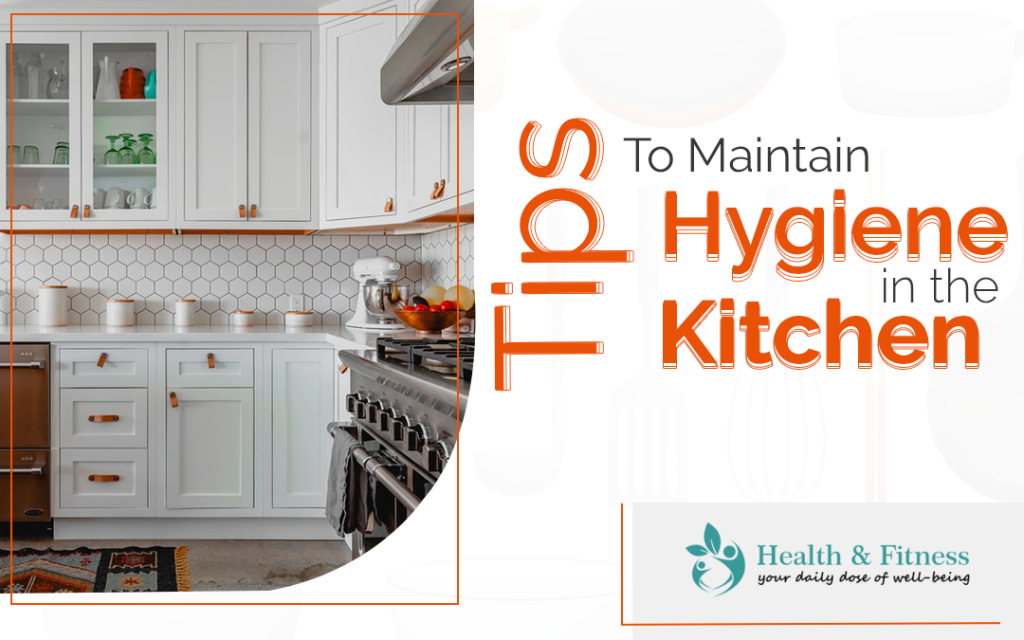Top 12 Tips to Maintain Hygiene in Kitchen
At the time of cooking it is very important to do it in a clean environment and taking into account all sanitation measures, because by handling food in the correct way you will be protecting yourself and your family from diseases . But it’s not just about cleaning the area a few times a week, here we give you some key tips so you know how to maintain hygiene in the kitchen and keep bacteria away from yours.
Maintaining a healthy diet is essential, not only to feel good, but also for your children to grow up healthy and strong by eating all the nutrients they need. For your family to enjoy a healthy and quality diet it is essential to cook responsibly. Hygiene in the kitchen is not simply keeping the space where you will cook clean, but being careful in how you wash, handle and cook food .
The conservation and preparation of food in a hygienic way is essential both to avoid possible health problems and to maintain its nutritional quality. Especially when the hot season arrives these precautions should be taken.
Why is it important to maintain hygiene in the kitchen?
Taking care when preserving and preparing food is essential to maintain its nutritional quality and avoid possible health risks for your family. The kitchen should be a clean and tidy since food is handled there. Lack of hygiene can create sources of contamination, so maintenance and cleaning must be taken care of. Sometimes, small oversights when handling food can produce diseases caused by viruses, bacteria and parasites. During the hottest months is when there is more food danger, since the risk of development of microorganisms is greater. It is time to be extremely hygienic in the kitchen and to be extremely careful when handling food. Without a doubt, it is the best thing you can do to prevent foodborne diseases .
How To maintain hygiene in the kitchen?
Different areas of the kitchen must maintain correct hygiene and cleaning standards. A series of tips on proper hygiene in the kitchen as well as on the correct handling and cooking of food can greatly avoid possible food poisoning, especially frequent in the summer season.
Here are tips to maintain hygiene in kitchen
A clean and shiny kitchen
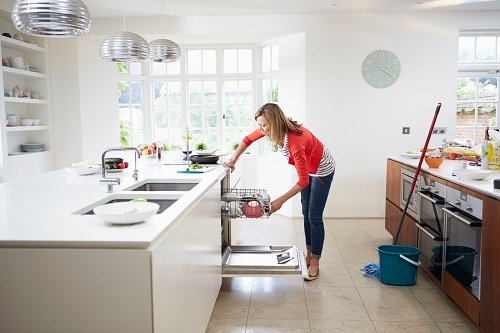
Before you start cooking, make sure your kitchen is clean and shiny. Food stains and splashes, grease and oil, and other debris that can settle on countertops, laundry room drains and walls can become sources of infection. Try to keep your kitchen clean on a regular basis to avoid risks.
2. Maintain Fridge and freezer

Keep them clean. The ideal is to wash it with soap and water before putting in the weekly purchase and every 3 months to carry out a deeper cleaning.
Even cooked ones should be kept in the fridge. Many times we make the mistake of leaving cooked food out of the fridge. Keep in mind that, especially in hot weather, pathogens multiply very quickly at room temperature and in just over 2 hours can spoil food. Of course, an excess of time in the refrigerator (approximately more than 3 days) can also be dangerous when eating food.
3. A Clean and Tidy Pantry

The pantry should be at height, away from the floor, and in a cool and ventilated place, preferably away from the oven. To properly preserve food you should store it at about 17 degrees, tightly closed (if they are open, put clips or clips to close them) and away from sources of heat and moisture. Check food labels to corroborate their preservation recommendations and make sure they are not expired.
It should be a cool and ventilated place. Food should be kept away from light and heat sources (they should be around 17ºC) and avoid contact with the ground.
4. Use Trash can with lid
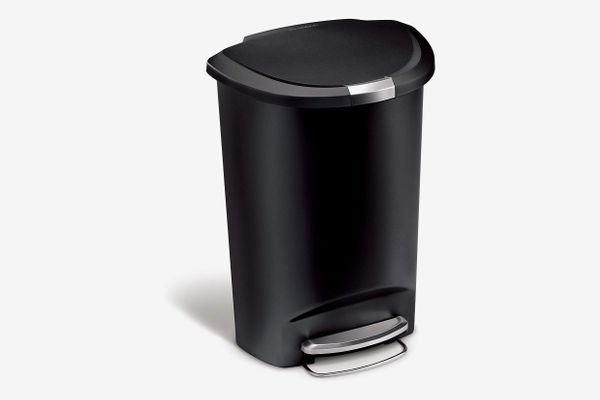
It seems obvious, but it is not. The garbage can should be located in a place away from food and preferably have a lid to avoid the multiplication of germs and their transfer to food. It should always be kept covered, the ideal is a pedal bucket.
5. Personal hygiene , Wash your hands

Before you start cooking, remember to wash your hands well with soap and water and dry yourself with a clean cloth . When cooking with children , teach them to wash their hands before and during the process, as well as being extremely careful when handling food.
6. Wash food well

It is extremely important to properly wash food, especially those you plan to serve raw . Lettuce, spinach, Swiss chard and other vegetables are the most complex when it comes to washing, since their hygiene must be carried out leaf by leaf. Take your time to carry it out since, if you do not clean each nook well, you can ingest bacteria that cause gastrointestinal diseases. Always devote time and attention to washing vegetables and fruits. It’s the only way to make sure they’re clean before you eat them!
here are the tips for grocery safety.
7. Cookware Cleaning
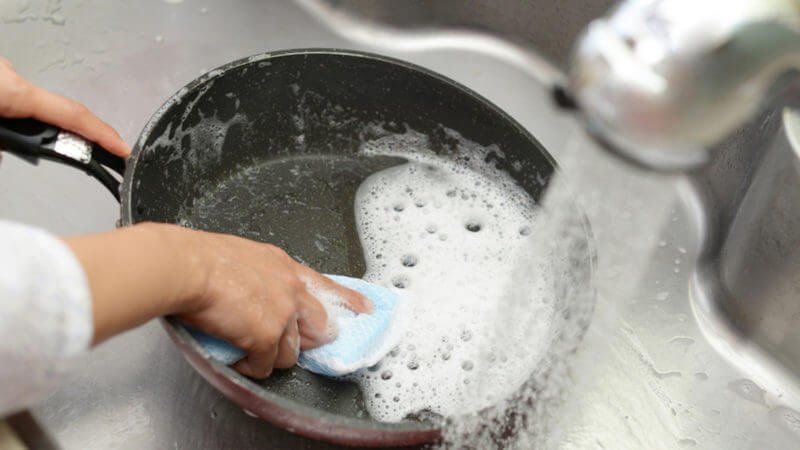
Those commonly used for food handling such as kitchen tables should be cleaned with soap, water, and a brush after each use. The use of hardwood or rigid plastic boards, which are free from defects and easy to wash, is recommended. If possible, it is preferable to use two tables, one for fruits, vegetables, and ready-to-eat foods and one for raw animal foods that require preparation.
Regarding the rest of the utensils, they must be clean and washed when the cut is finished, wash the lids of the canned foods before opening them, and never put ready-to-eat foods on a plate where some raw food (such as meat, chicken or fish) was previously placed.
8. Properly cook food

Microorganisms have difficulty growing in temperatures above 55ºC or below 5ºC, so: don’t hesitate and cook your food well. Especially when cooking large pieces of fish, red meat, poultry, and eggs, make sure they reach that temperature indoors, too. Take special care when cooking in the microwave since cooking can be done unevenly, overcooking the outside of the food, without completely heating the inside. read more about Food safety tips.
9. Wash Cloths and rags perfectly

It is recommended to use a cloth or cloth for each use and they should be washed and drained after using them. Sponges and brushes are perfect if washed in the dishwasher. Changing cloths and cloths should be done often. The rags used to dry dishes and clean the kitchen must be clean. It is recommended to wash them at least once a week with hot water.
10. Clean Cooking area surface

It can be washed with a special chlorine solution to use in the kitchen (taking care that it does not mix with food later) or with some commercial bactericidal solution.
12. Clean Kitchen sink drain time to time
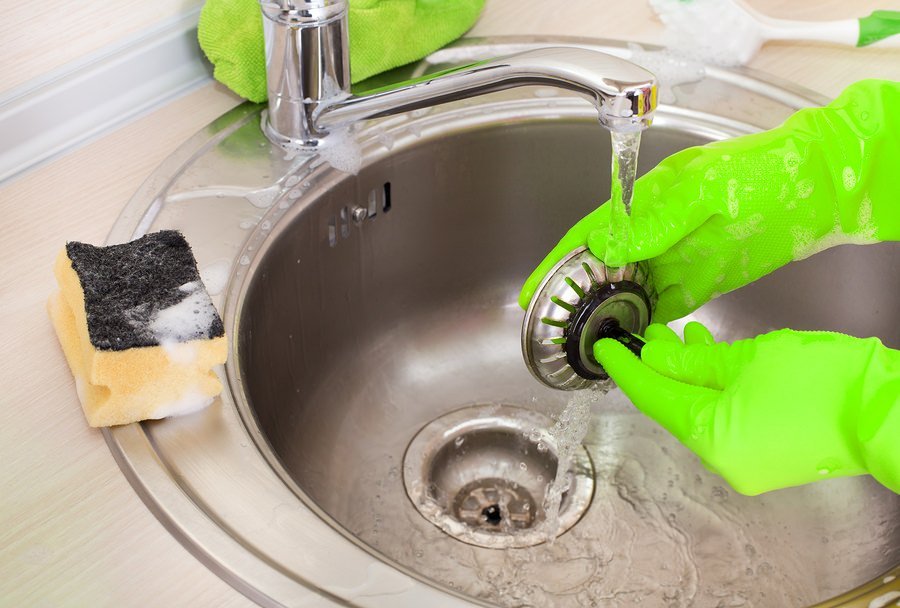
It can be a focus of germ accumulation. A specific disinfecting solution is recommended , especially if meat or products derived from dead animals have been prepared. This should be done as these wastes remain in the drain and can create a perfect environment for bacteria to grow.
Final Word on Kitchen Hygiene Rules
In general, personal hygiene is highly necessary as regards avoiding food poisoning and kitchen sickness. Proper hand washing, general cleanliness and alertness to the hazards associated with cross-contamination are some of the most critical considerations to bear in mind when preparing food.
Holding good standards of cooking hygiene helps prevent bacteria, viruses, bad odors and diseases from rising and spreading. For a number of reasons-financial, psychological, environmental, social, or simply as a natural way of life-it is important to maintain hygiene in the kitchen and a clean kitchen.

